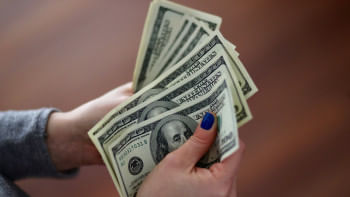Sales of savings tools on the rise
Net sales of savings certificates rose 8.49 percent year-on-year to Tk 17,315 crore in the first four months of the fiscal year as savers' appetite for the high-yielding tools shows no sign of fading.
In July-October, the government's borrowing through the savings instruments was more than 57 percent of the entire fiscal year's target of Tk 30,150 crore, according to data from the Directorate of National Savings.
Savers are largely interested in savings tools because they offer higher interest rates -- 11.04 percent to 11.76 percent -- way higher than the 7 percent rate offered by banks on fixed deposits.
In fiscal 2016-17, net sales of savings tools hit an all-time high of Tk 52,327 crore, more than 2.5 times higher than the government's target of Tk 19,610 crore.
The trend would continue this year as well if the government does not slash the rates on the savings certificates, said a senior official of the Bangladesh Bank.
Higher borrowing through the savings instruments is pushing up the government's interest expenditure. If the government borrows from the banking system, it will cost 2.98 percent to 8.07 percent.
Because of the huge sales of the savings tools, the government's net borrowing from the banking sector went into negative in the first quarter of 2017-18.
The government borrowed Tk 2,132.3 crore from banks in the first quarter and repaid Tk 5,270.2 crore to take its net borrowing from the source to Tk 3,137.90 crore in the negative.
As a result, most banks are sitting on excess liquidity, the BB official said.
"The banks will get a respite if the government starts to borrow from the banking system in full swing," he added.
AB Mirza Azizul Islam, a former caretaker government adviser, told The Daily Star yesterday that the net investment in the savings instruments would increase further in the coming days as depositors' confidence in the banking sector has eroded because of frequent financial scams.
Though initially only state-run banks were rattled by scams, massive irregularities are now being detected in the private sector lenders.
"It may create an uncertain situation for clients," Islam said.
According to the former adviser, the higher rates on the savings tools are encouraging investors to park their money in the instruments which will create a mismatch for the government in dealing with deficit financing.
Islam, however, said the government should not slash the interest rates on the savings certificates because the tools are mainly bought by middle and lower-middle income groups.
"But the government should stop the sales of savings tools when its budgetary target is met," he noted.

 For all latest news, follow The Daily Star's Google News channel.
For all latest news, follow The Daily Star's Google News channel. 



Comments